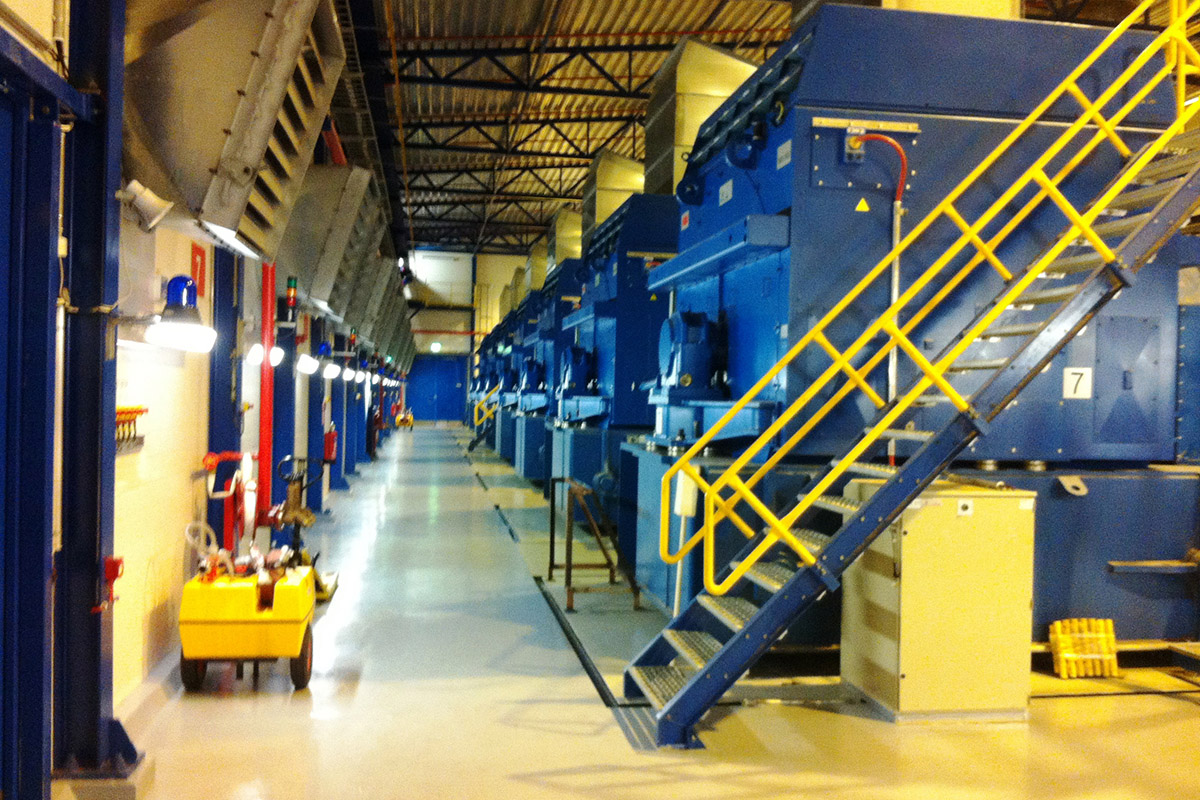Kribi Power has provided the energy required for an ambitious port development plan in Cameroon, a critical piece in plans for the future success of the country and its neighbours, in a partnership with ABB Turbocharging.
Kribi in Cameroon is justly renowned for its beautiful beaches. The Lonely Planet describes them as the country’s best, noting: “The sand is fine, the water crystal clear, fresh fish is on the menu and cold beer on tap; there are times when Africa hugs you.”
More than a tourist paradise, the town of around 100,000 people has an important part to play in the economic future of Cameroon and its neighbors. A $1.3 billion redevelopment of Kribi’s port is helping to open the regions’ iron ore, cotton and other commodities to global markets, helping Cameroon diversify its exports from oil and easing access to goods from Chad and the Central African Republic.
The projects’ success, however, and with it the future of the region and its 42.5 million residents, is heavily dependent on a reliable and scalable power supply.
This was the herculean challenge facing Gilles Enguene when he was appointed to manage the power plant for the Kribi Power Development Company (KPDC) S.A. in 2017. It was his and his team’s responsibility to ensure that the town and national grid could support the country’s ongoing economic development.
Frequent failure
Kribi Power is a 216 MW natural gas-fired reciprocating engine power plant comprised of 13 Wärtsilä 18V50DF generating sets, that produces roughly a sixth of Cameroon’s southern Grid electricity.
“The major problem we encountered when we arrived at the Kribi thermal power plant about a year and a half ago was the high frequency of engine failures, he said. “The urgency for my staff and I was therefore to analyze the system to identify the necessary levers to eliminate all the factors which could result in downtime and, by association, lost production and penalties. This analysis made it clear that most, if not all, of the time failures were due to damaged turbocharger caused by foreign objects.”
ABB has been servicing the plant since it was commissioned in 2013, but as Pascal Mooh, the head of ABB’s Douala Service Station in Cameroon observed, serving and maintenance was largely conducted on an ad-hoc basis. “Most of the break downs were because of foreign object damage,” he said. “When a turbocharger was damaged, a service team was called out to assess the damage and provide a quotation. Only once this had happened could a purchase agreement be sent in for approval so that we could order parts and send a team out to make repairs or, in the worst case scenario, remove the turbocharger completely and send it in for repair.”
Downtime and penalties
As a result, the repair process caused an enormous amount of downtime for the plant, resulting in significant financial penalties for Kribi Power.
“As my team and I were looking to resolve our continuing power outages, ABB was reaching out to present a solution: The Turbo LifecycleCare Service Agreement concept,” said Kribi Power’s Enguene. “It goes without saying that we had already thought of ABB as a solution provider. Indeed, before Kribi I had managed other thermal power plants, notably the Limbe Thermal Power Plant (82MW) and the Yassa Thermal Power plant (85MW), where I had strong support from the Turbocharging team of ABB. But the LifecycleCare support concept is special. It was tailored and adapted to our specific challenges and needs.”

The right solution
For Kribi, the five-year Turbo LifecycleCare service agreement covers:
- Maintenance planning: ABB takes the responsibility for maintenance management and equipment scheduling need to limit downtime and costly ad hoc servicing.
- Budget control: A service partnership agreement eliminates the need for negotiation and allows Kribi Power to secure better commercial terms for parts, repairs and service.
- Original spare parts: In addition to ensuring the correctly specified spare parts are used, the service station maintains replacement turbochargers, meaning they can replace a damaged unit without lengthy delays.
- A single point of contact: Dealing with a single business provides a more holistic overview of the project needs and complete transparency.
ABB’s Douala Service Station is part of a global network of more than 100 service teams in over 50 countries, which collectively employ 1,200 specialist engineers who manage around 35,000 turbochargers under customized service agreements. They specialize in helping power companies like Kribi keep their facilities running around-the-clock, successfully delivering original spares within 24 hours more than 98 percent of the time.
“We recognized that helping KPDC achieve its performance objectives in Kribi was critical to the economic future of Cameroon and the wider region,” said ABB’s Mooh. “For the project to succeed, however, we had to do more than just deliver a service, we had to build a strong relationship with effective communication to ensure that issues are addressed promptly to minimize outages and ensure that the right priorities are being set to make the best use of available resources. That’s why we send a transaction survey to identify what we can do better after every job, determine what worked well and to close the job with the Kribi Power. This is about listening to the customer, measuring their satisfaction.”
The results speak for themselves, as the contract has significantly simplified ordering processes, eliminated lost production, and improved control of the maintenance budget for the plant.














